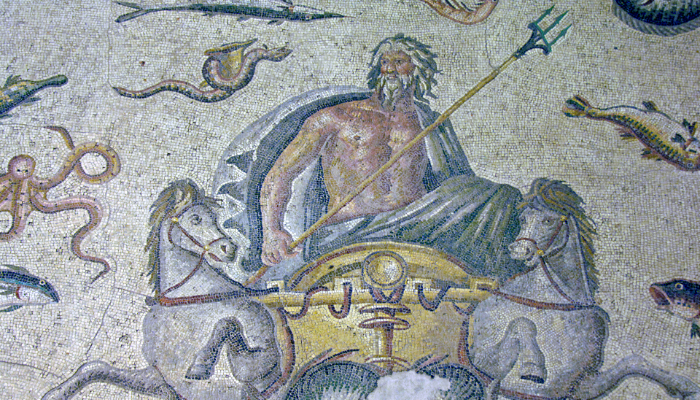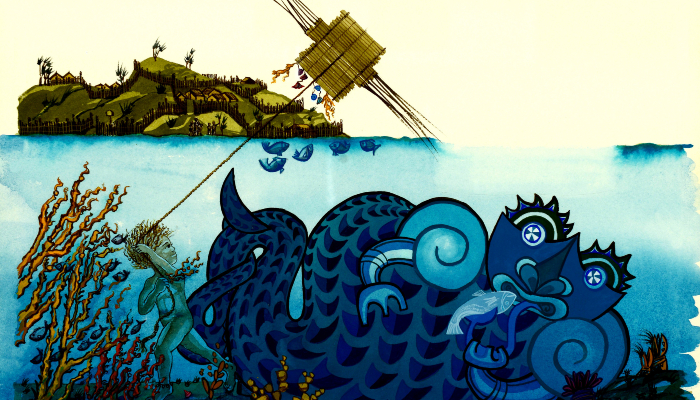Myths and legends
Where can I find information about myths and legends from around the world?
(Years 5-8)

Image: Gaziantep Achaeological Museum Poseidon mosaic Poseidon in 2007 0337b by Dosseman on Wikimedia Commons. CC by 4.0. Image cropped.
Entry last updated: 24/10/25
Introduction
Every culture has its own collection of myths and legends. Legends are semi-true stories based on historical facts, events, and people, whereas myths are stories based on legends or sometimes used to explain origins, beliefs, and supernatural beings like gods, demigods, monsters, and fairies.
Egypt, Rome, Greece and China are some cultures that are famous for their myths and legends.
General Websites
The websites below will explain more about myths and legends, and how they began in various countries around the world.
Britannica School is part of EPIC, a collection of reliable databases covering lots of different topics. It’s put together especially for New Zealand school students and helps to answer questions like this.
Chose the Middle level and type search word 'legend' into the search box.
Then select legend to read an article that explains more about legends.
Find the Related tab from the top of the page. Here you will find famous legends such Robin Hood, Helen of Troy, and more.
Enter keywords 'myths' into the search box, then look at mythology to read an article on myths.
On the left hand side there is a list of myths from different cultures, like Egyptian mythology or Roman mythology.
Follow other links on the pages to discover more.
Tips: To use the EPIC resources, you need a password from your school librarian. Or chat with one of our AnyQuestions librarians to help you online. Some EPIC databases may also be available through your public library.
Tips: Search words, or keywords, are the most important words in our question. Usually it’s better to leave out small words like ‘the’, ‘a’ and ‘of’ and just choose the main ones, eg 'myths' or 'legends'. We can always change our keywords or add more if we need to.
National Geographic Kids has articles on science, animals, geography and history. There is also a good section of Greek myths.
Type 'myths' into the search bar.
Chose to read 5 Terrifying Tales from Greek Mythology and The Gods and Goddesses of ancient Greece.
Tips: Websites that have .com or .co in the address can have good information, but you need to assess how reliable it is. Check the About us link on the website, if you can find one. That can tell you what the company’s mission and values are.
This education site is easy to read and interesting. It's section on history includes myths, mythology and legends from various civilizations.
Select History from the home page and look under Ancient History.
Go to Ancient China, then Culture. You will find links to Mythology and the Legend of Silk.
In the same way go to Culture or Arts and Religion under Ancient Mesopotamia, Ancient Egypt, Ancient Rome, Ancient Greece, and Native Americans.
Tips: Many web pages have links to further information or to other recommended sites. Following these links is a great way to find out more.
Books
Your school library or public library will have lots of books on myths and legends from different cultures.
Here are some suggested titles:
Myths and Legends by Penny King
Myths and Legends by Deborah Lock
Myths and Legends by Tracey Turner
Myths and Legends by Fiona Macdonald.
SCIS no: 1941073

